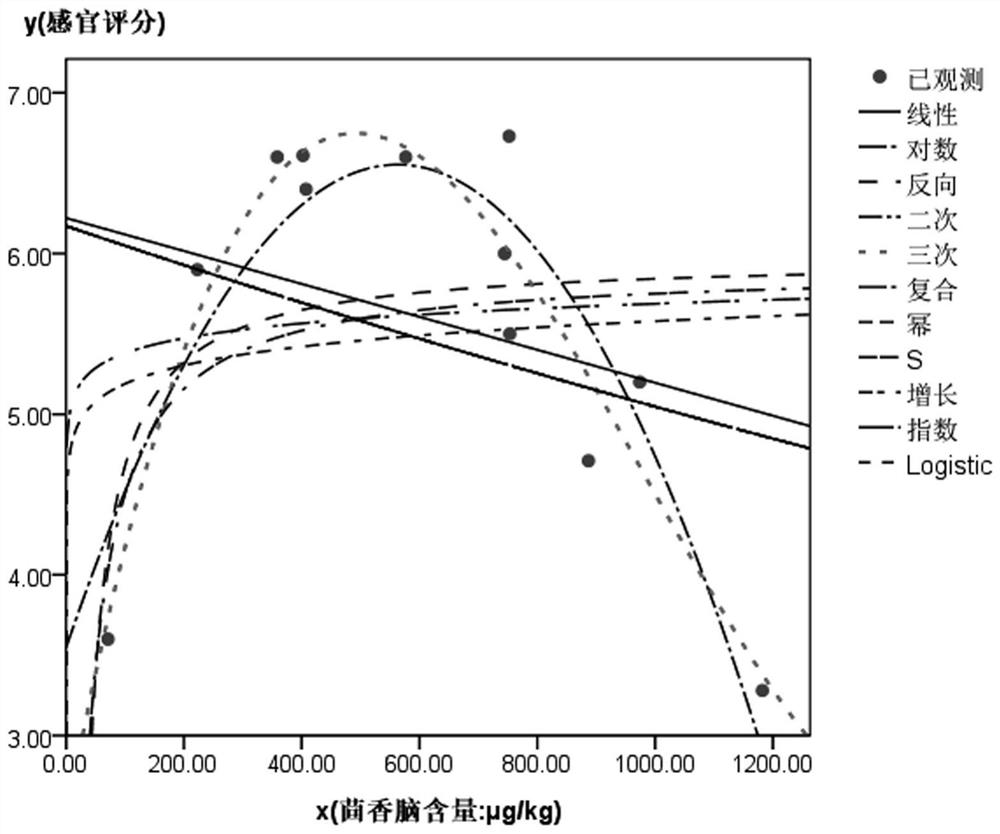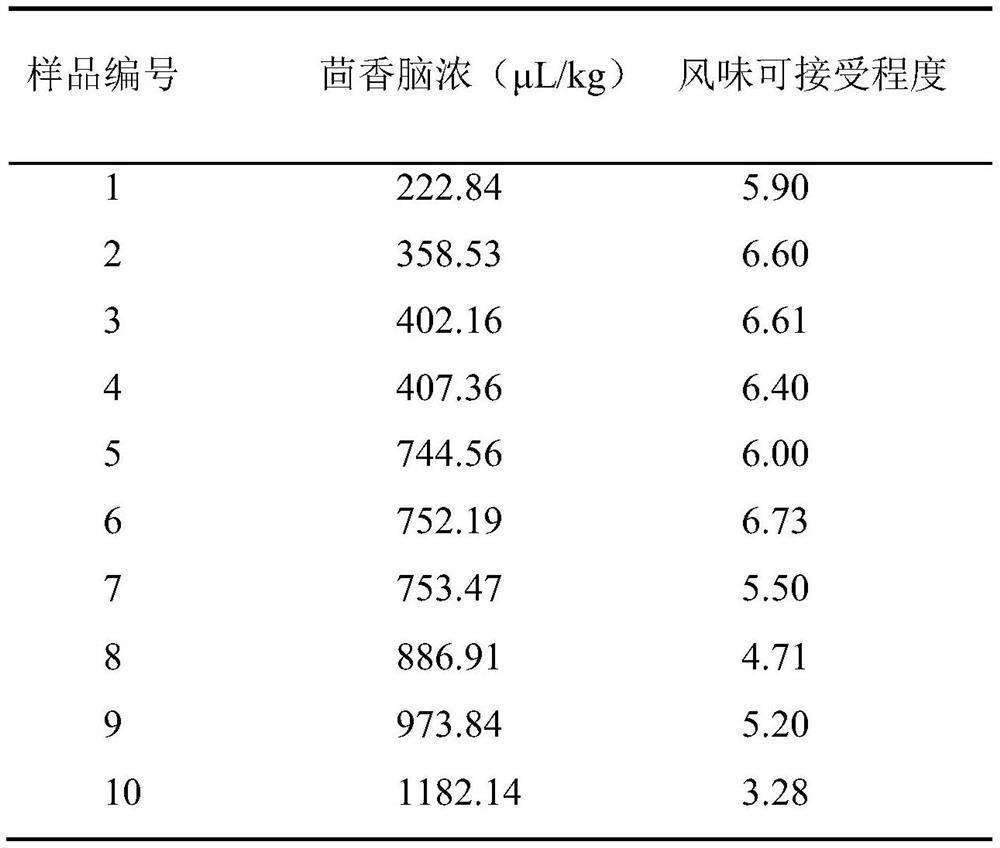Flavor evaluation method of fermented pseudosciaena crocea
An evaluation method and technology for large yellow croaker, applied in the directions of instruments, measuring devices, scientific instruments, etc., can solve the problems of inability to objectively, accurately reflect flavor characteristics, and efficiently evaluate the quality characteristics of fermented large yellow croaker, and achieve the effect of accurate evaluation.
- Summary
- Abstract
- Description
- Claims
- Application Information
AI Technical Summary
Problems solved by technology
Method used
Image
Examples
Embodiment 1
[0024] (1) Mature the fermented large yellow croaker with different fermentation methods:
[0025] After the large yellow croaker was salted and fermented for 24 hours and fermented without salt for 12 hours, the fermented large yellow croaker was frozen and preserved. Before aging, thaw in the refrigerator at 4°C for 2 hours, remove the fish head, fins and scales, and after cleaning, put the two fermented large yellow croakers in an oven at 200°C and bake them for 0, 10, 20, 30, 40 hours respectively. , 50min for ripening operation.
[0026] (2) Determination of anethole concentration in fermented large yellow croaker after aging by solid phase microextraction combined with gas chromatography-mass spectrometry:
[0027] Weigh 15 g of fermented large yellow croaker after aging in step (1), add 15 mL of sodium chloride solution with a mass concentration of 5% and 10 μL of cyclohexanone with a concentration of 1 mg / mL as internal standards, shake for 1 min, and place at 60 ° C ...
Embodiment 2
[0042] Test samples: select three fermented large yellow croaker products FA1, FA2 and FA3. FA1 is made by marinating and fermenting fresh large yellow croaker in 10% salt concentration for 24 hours. FA2 is made by laying glutinous rice or corn flour and fresh large yellow croaker alternately in a container, and fermenting at natural temperature for 5 days. FA3 is made from large yellow croaker that has been descaled, dorsally dissected, washed, and fermented for 12 hours without adding salt. Three different samples (fermented large yellow croaker) were placed in an oven, aged at 200°C for 40 minutes, and then the following steps were performed:
[0043] (1) Sensory score: Organize the sensory panel members to rate the flavor acceptability of the 3 mature samples, each sample is taken three times, and the score ranges from 0 to 10 points, the higher the score of the flavor acceptability, the better the flavor quality. Well, take the average at the end. During the evaluation...
Embodiment 3
[0050] Test sample: large yellow croaker fermented without adding salt for 12 hours after descaling, dorsal dissection and cleaning, placed in an oven at 200°C, aged 0, 5, 10, 15, 20, 25, 30, 35 , 40 and 45 minutes later, perform the following steps:
[0051] Sensory scoring: Organize the sensory panel members to rate the flavor acceptability of 10 ripened samples, and take three repetitions for each sample. The scores range from 0 to 10. The higher the flavor acceptability score, the better the flavor quality. take the average. During the evaluation process, the ambient temperature was kept at 20±3°C, the relative humidity was kept at 50% to 75%, and the room was kept ventilated without other odor interference.
[0052] SPME-GC-MS analysis of anethole concentration in the ripened test sample: Weigh 15g of the above-mentioned ripened test sample in a 50mL headspace bottle, add 15mL mass concentration of 5% sodium chloride solution and 10 μL concentration of 1mg / mL of cycloh...
PUM
 Login to View More
Login to View More Abstract
Description
Claims
Application Information
 Login to View More
Login to View More - R&D
- Intellectual Property
- Life Sciences
- Materials
- Tech Scout
- Unparalleled Data Quality
- Higher Quality Content
- 60% Fewer Hallucinations
Browse by: Latest US Patents, China's latest patents, Technical Efficacy Thesaurus, Application Domain, Technology Topic, Popular Technical Reports.
© 2025 PatSnap. All rights reserved.Legal|Privacy policy|Modern Slavery Act Transparency Statement|Sitemap|About US| Contact US: help@patsnap.com



